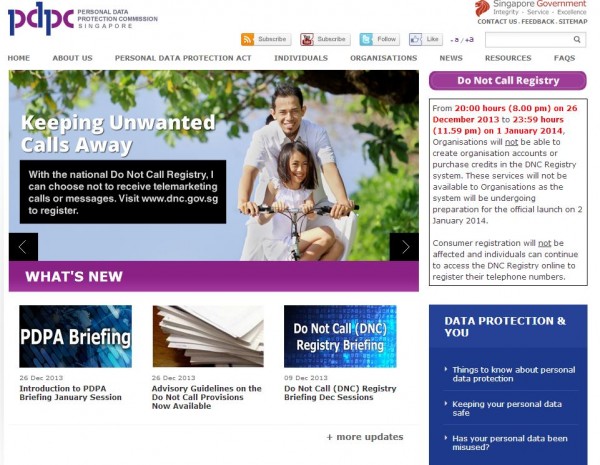
If there was any doubt how serious the problem was, there’s now a statistic that surely proves that Singapore users are inundated with unsolicited marketing messages and calls on their phones.
Just a month and a half after a do-not-call list came into effect, the Personal Data Protection Commission (PDPC) has investigated 1,500 valid complaints from the public and probed 580 organisations for possible violations.
The potential offenders came from a variety of industries, but users who have ever got spam on their phones should be familiar with messages and calls from private education, property, banking and finance, retail, insurance and telecommunication companies.
Among them, a “recalcitrant” organisation that has repeatedly sent unsolicited messages to users who are on the do-not-call list could be prosecuted, said the data protection commission on Friday.
Another two will face fines of between S$500 and S1,000, while more than 100 others will be sent warnings, with more offenders to be hauled up in the next few weeks, it revealed.
There may be no figures to compare how good or bad the situation was before the new regime. Perhaps users were just more ready to complain to the commission since the do-not-call list had just come into effect on January 2.
Still, the number of complaints show that companies are either not ready to adhere to the new rules, or are simply not keen to respect users’ request for privacy, new data protection law or not.
The second part will be worrying for users. Despite being given more than a year to get their act together, so many organisations have failed to do so.
And this, after the commission gave them much more leeway in the eleventh hour, by allowing them to keep sending messages to users once they have some sort of prior relationship.
Having already sided with the telemarketers with that unexpected ruling, the authorities must now be firm with those who continue to break the rules. After all, rules are only as good as they are enforced.
If companies find that they can get away with minor infractions, or feel that users will be too lazy to complain, they will start taking chances again to send all these annoying messages that users have depended on the do-not-call list to block off.
Already, some real estate and telecom companies are seeking broader exemptions to the do-not-call list (see the latest consultation responses). Key to them is keeping as much of their existing customer database live, even though many users may already have asked for no more calls and messages.
Here is where the authorities have to do their job. Adding even more exemptions to the current do-not-call list will make an even bigger mockery of what it was meant to achieve.
For users who sign up to the list, the message is crystal clear – no more marketing messages and calls. How difficult is that to understand?





